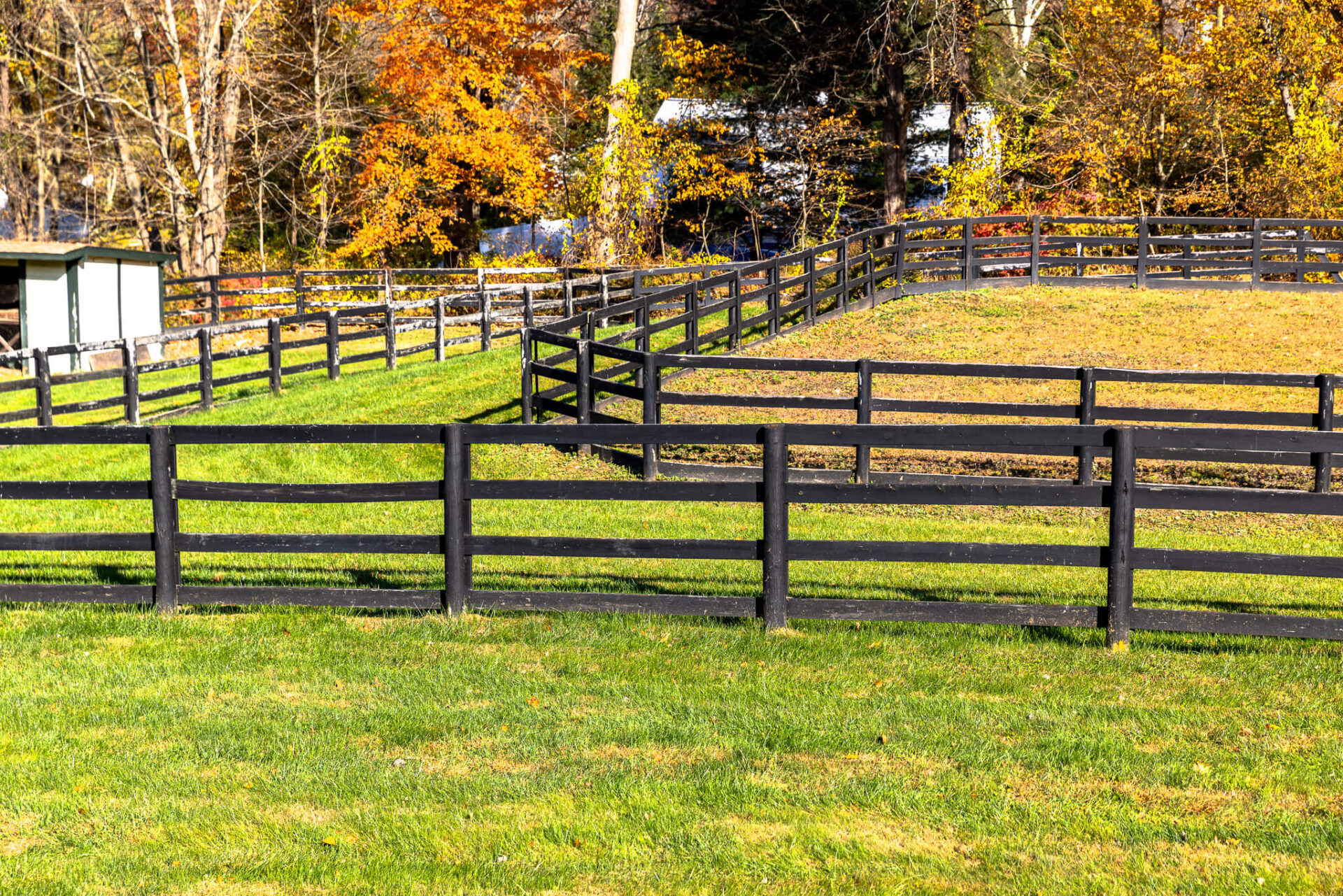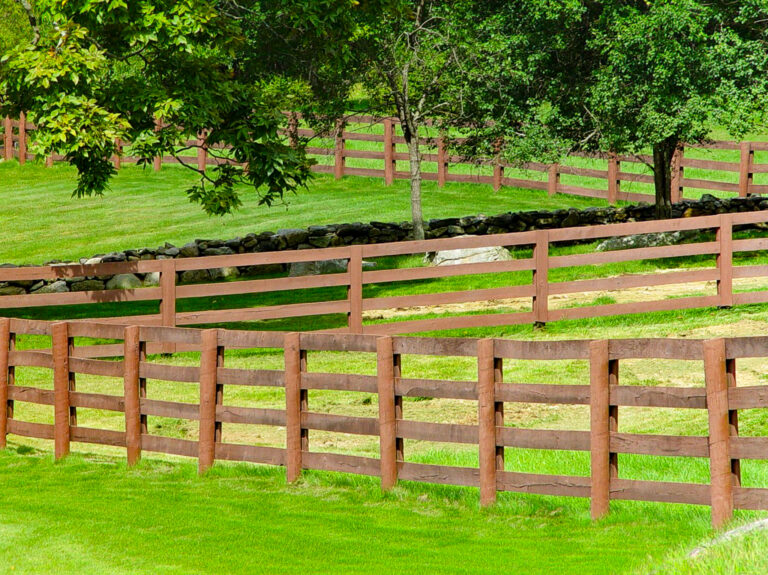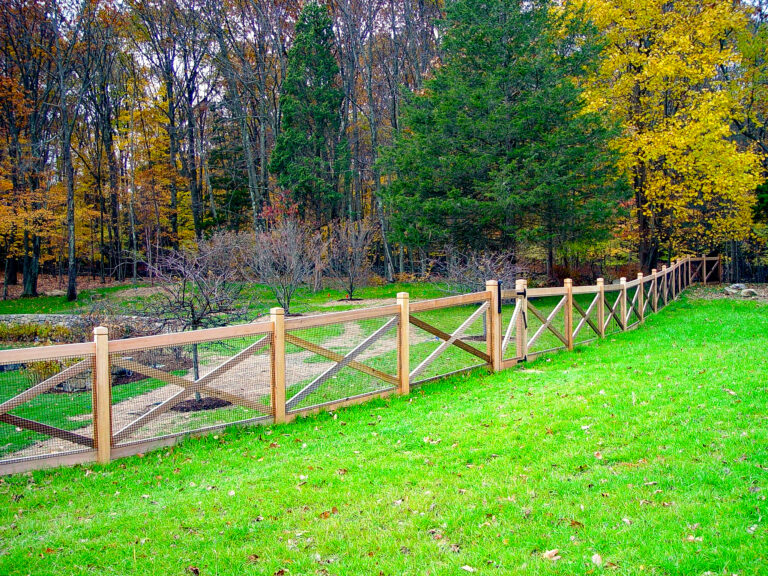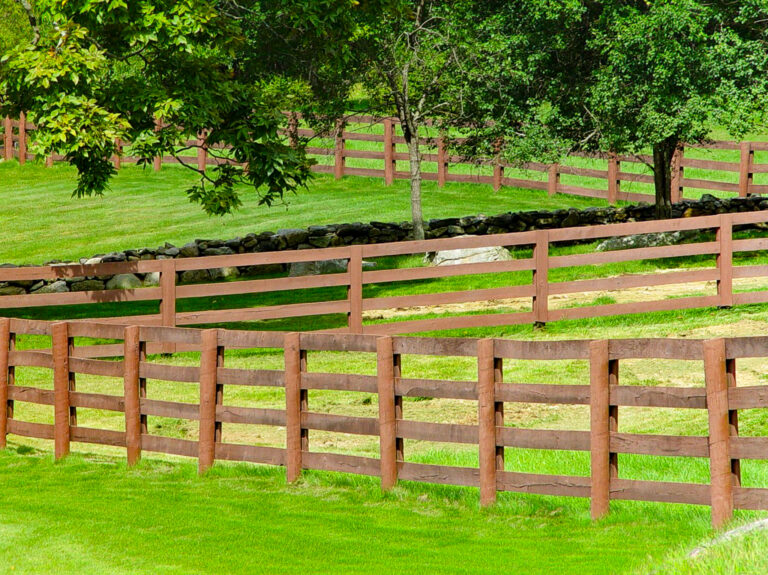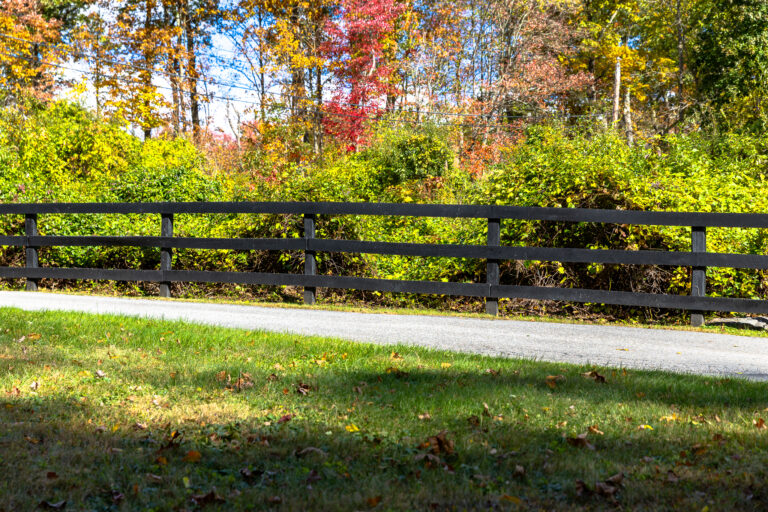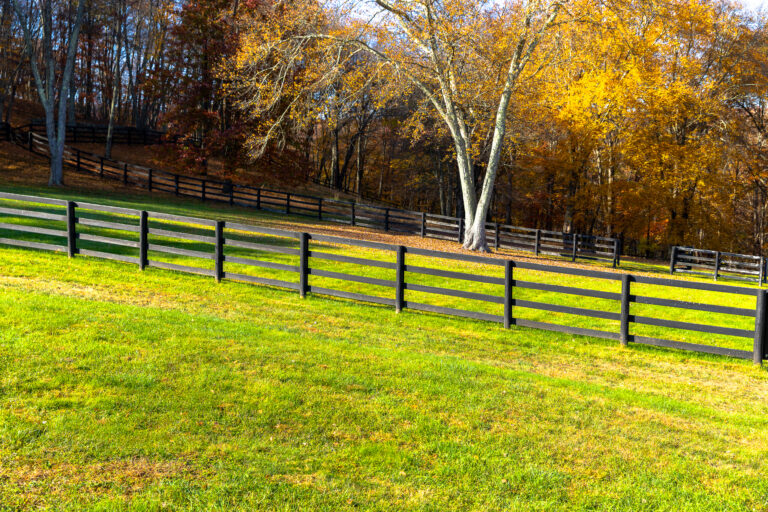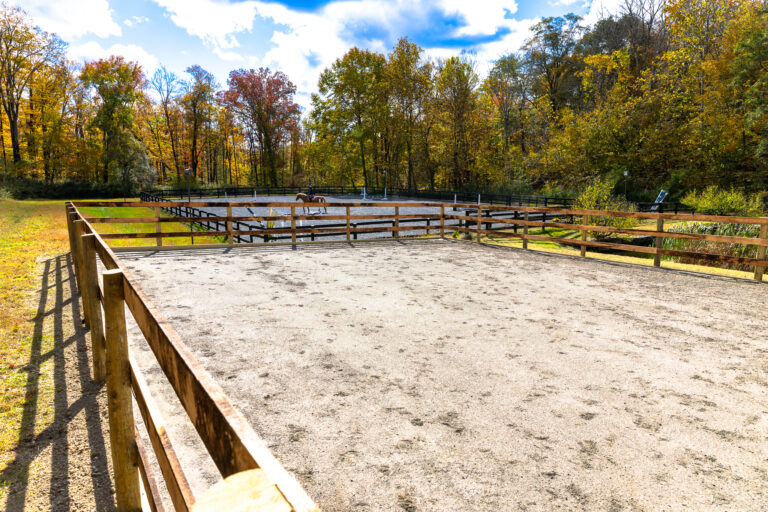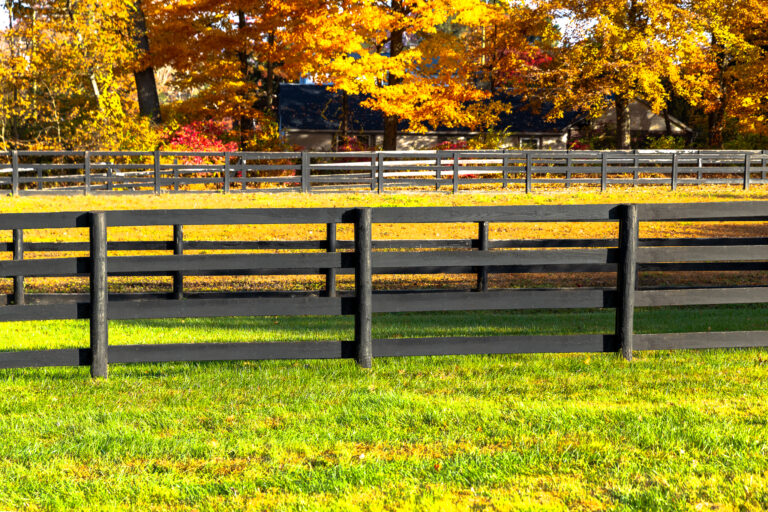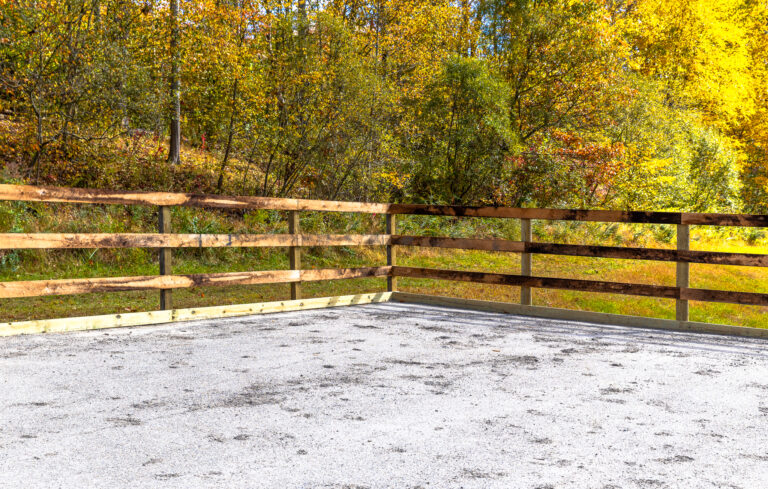You are using an outdated browser. Please upgrade your browser to improve your experience.
Custom, Professional Horse Fence Installations
Horse fencing is unique from other types of fencing. Horses are strong, they’re curious, and they have an uncanny ability to find the one weak spot in your fence line. The wrong material can injure them. Poor construction can lead to expensive escapes. And cheap fencing that looks fine today might become a safety hazard in two years when the weather gets to it.
Since 1979, Garon Fence has been building custom horse fencing for properties across New York, New Jersey, and Connecticut. Our experienced fence builders know which materials work best for different horse breeds, how to space rails for safety, and how to build fencing that lasts decades in our climate. When you’re protecting valuable animals, you need fencing built by people who understand both horses and fence design. That’s exactly what we deliver.
Primary Horse Fence Types
The right fence type depends on your horses, your budget, and how much maintenance you want to deal with. Some materials are virtually indestructible but cost more upfront. Others require regular upkeep but give you that classic look everyone associates with horse properties. The key is understanding what each type does well and where it might let you down.
Wood Rail Fencing
Wood rail fencing is the classic choice that never goes out of style. Wood rails are visible, strong, and horses respect them naturally. They’re also repairable. If a horse kicks through a board, you replace that board, not the entire section. The downside is maintenance: wood fencing needs staining or painting every few years, and it will eventually rot or splinter.
Vinyl Rail Fencing
All the visual appeal of wood without the maintenance headaches. Vinyl won’t rot, won’t need painting, and handles weather beautifully. It’s more flexible than wood, which can be safer if a horse runs into it. The trade-off is cost. Vinyl fencing costs significantly more upfront, though many owners find the long-term savings worth it.
Mesh Fencing
Woven wire or specialized horse mesh provides sufficient containment and ample visibility. It’s especially effective for horses that like to reach through fence rails or for properties where you need to keep smaller animals out. Quality horse mesh is designed with spacing that prevents hooves from getting caught. While mesh fencing is economical, the installation requires expertise to get the tension right.
Horse Fence Best Practices
The best horse fence is one that horses respect but don’t fear, engineered to work with horse psychology rather than against it. Essential horse fencing best practices include:
- Proper height requirements – Equine fencing should stand 4.5 to 5 feet high for most horses, with larger breeds or stallions requiring 5.5 to 6 feet. Height prevents jumping attempts while avoiding shadows that can spook horses.
- Safe material selection – Wood remains the gold standard, particularly oak or treated pine that provides visibility, strength, and flexibility under impact. Avoid materials with sharp edges, small openings, or anything that can cause cuts or entrapment.
- Correct rail spacing – Rails should be spaced no more than 8 inches apart to prevent leg entrapment, with bottom rails 8-12 inches off ground. This prevents horses from getting caught underneath while rolling or attempting to escape.
- Clear visibility – Horses must clearly see fence boundaries to respect them, requiring visible elements even with electric systems. Avoid transparent or nearly invisible barriers that horses might run into at speed.
- Durability against horse behavior – Posts should be spaced no more than 8 feet apart with proper corner bracing to withstand constant leaning, rubbing, and testing. Hardware must be recessed or covered to eliminate puncture risks from exposed bolts or brackets.
- Psychological comfort – Equine fencing should feel secure without creating anxiety, using familiar materials and avoiding sharp contrasts or sudden changes that might spook horses. Consistent appearance and smooth transitions help horses feel comfortable near boundaries.
Free On-Site Consultation in Connecticut, New York, and New Jersey
Located in Westchester County, NY, Garon Fence serves customers in Connecticut, New York, New Jersey, and the greater New England area. Call 914-218-6408 or contact us online to discuss your project. Check out the areas we serve and inquire about custom horse fence installation near you.

